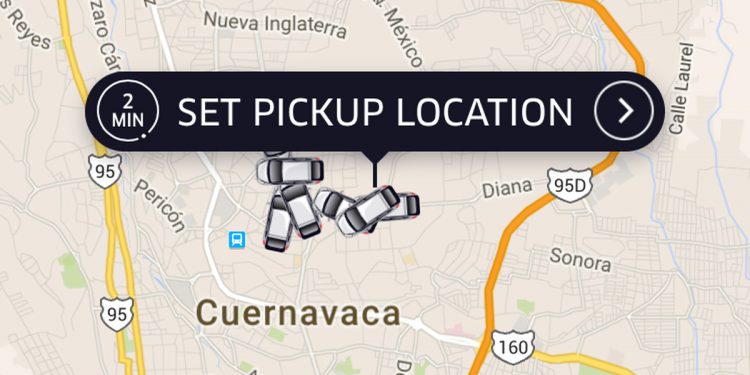In July 2015, after months of controversy, public debates and negotiations with city authorities, Mexico City approved the use of App-Cab private car services such as Uber and Cabify, and thus became the first city in Latin America to formally approve the new taxi cabs of the Internet Age.
The appearance and rapid expansion of Uber—which is the best-known of the services—had caused significant controversy in Mexico City as elsewhere in the world. Established cab drivers in the capital and other cities blocked streets in protest and demanded that Uber be banned.
Roaming street cabs as well as those associated with a cab company or local bases—sitios as they’re known in Mexico—complained that they were placed at a significant disadvantage because they have to pay all kinds of fees such as rights to license plates, verification of taxi meters, etc. These traditional cabbies argued that Uber and others were offering a taxi service without authorization, and therefore breaking the law.
At first, city police carried out a number of operativos (police operations) against Uber drivers, impounding their cars for running a car service without a permit. The companies fought back, however, and found a great amount of support among users of social media, and even leaders of public opinion who argued that the reason the new services were so popular was that they were so efficient. If we are going to boast about our free markets, then let that show in the treatment of the innovative car services, was the main thrust of the arguments. Furthermore, they added, there was nothing stopping existing cabs from using technology to improve their services.
The advantages of App-Cabs are several:
- The drivers all use GPS and so customers who book the service can see where their assigned cab is in relation to their present location and time themselves accordingly
- When customers are on-board, the driver can find the least congested route to the intended destination
- Payment is made via credit or debit card through the App’s registration system, and so there are no problems with finding change
- If several friends who are all registered on the service are traveling together, the system can split the total cost of the fare across several accounts: this is quite popular with younger people who are on an outing together
- Rates vary, and can get quite high during rush hour, but they are known and agreed to before a ride is booked
- Many people, women especially, feel safer using the service where the drivers are clearly identified.
For many years Mexico City dwellers have been using their mobile phones to call radio taxis, or taxis from established sitios, for reasons of safety—and this continues to be a popular way to hire cabs locally. A number of these services, which also charge a premium in comparison to roaming street cab rates, accept credit cards and give receipts for payment. Most people have at least one or two sitio phone numbers stored in their phones so that they can call for a cab.
With roughly 140,000 traditional cabs in Mexico City, the relatively few ‘App-Cabs’ are hardly enough to cover all of the demand in a city of 20 million. Where competition between the old and the new is greatest is at weekends outside bars, nightclubs, and other entertainment venues where car services of all kinds can and do charge especially high rates to revelers needing to get home in the early hours, or after a pop concert or show.
The regulations passed in July 2015 formalize the legality of the App-Cab services, and establish a number of requirements for the operators, including paying an annual registration fee, and a duty of 1.5% of the value of all rides—money the city says it will use to develop pedestrian services and promote the use of technology among traditional taxi services. The regulations also include a minimum market value for App-Cab vehicles, eliminating the possibility of using the cheapest autos, and, only slightly ironically, ban them from accepting payment in cash (one of the selling points of the App-Cab services is that they don’t use cash).
Overall Uber and Cabify were satisfied with the arrangements, having said from the beginning that they were prepared to contribute to city coffers.
You can find out more information about Uber and the Spanish company Cabify on their respective web sites.
See Also: Uber Cabs Expand in Mexico
Mexico in your inbox
Our free newsletter about Mexico brings you a monthly round-up of recently published stories and opportunities, as well as gems from our archives.



